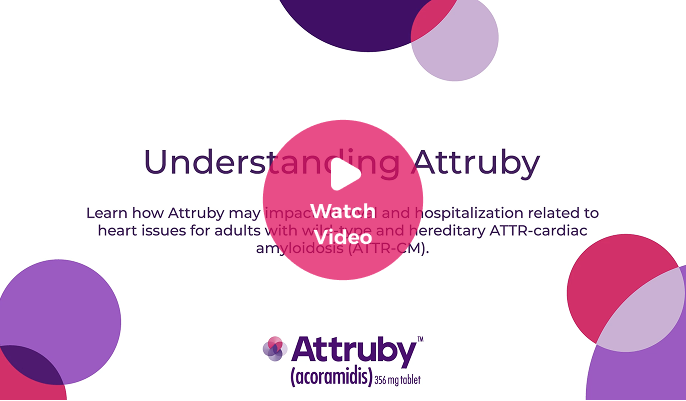Patients should always ask their doctors for medical advice about adverse events.
You are encouraged to report adverse events related to BridgeBio products by calling 1-844-550-2246 (U.S. only).
If you prefer, you may contact the U.S. Food and Drug Administration (FDA) directly. Visit www.fda.gov/MedWatch or call 1-800-FDA-1088.
The products discussed on this site may have different product labeling in different countries. The information provided is for educational purposes only and is not intended to replace discussions with a healthcare provider.
This site is intended for patients and caregivers based in the U.S.
Attruby®, the Attruby logo, ForgingBridges®, the ForgingBridges logo, and the BridgeBio Pharma, Inc. corporate logo are trademarks of BridgeBio Pharma, Inc. All other trademarks are property of their respective owners.
© BridgeBio Pharma, Inc. All rights reserved.
MAT-US-ACO-0772 V1













